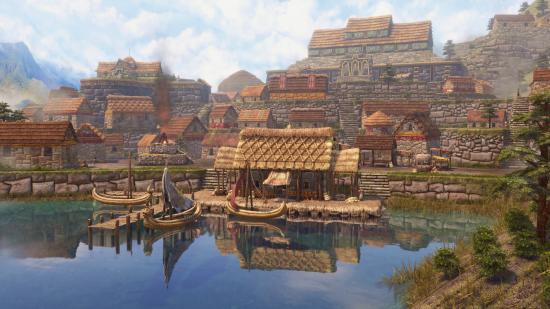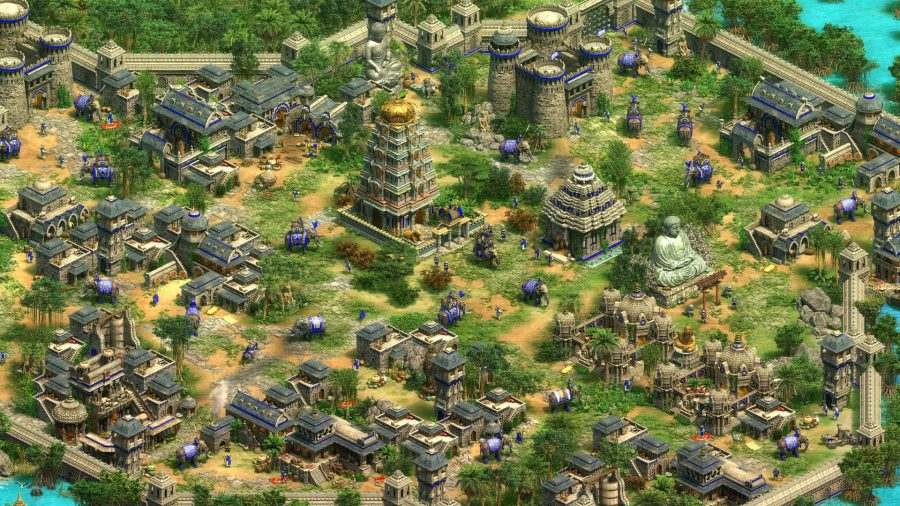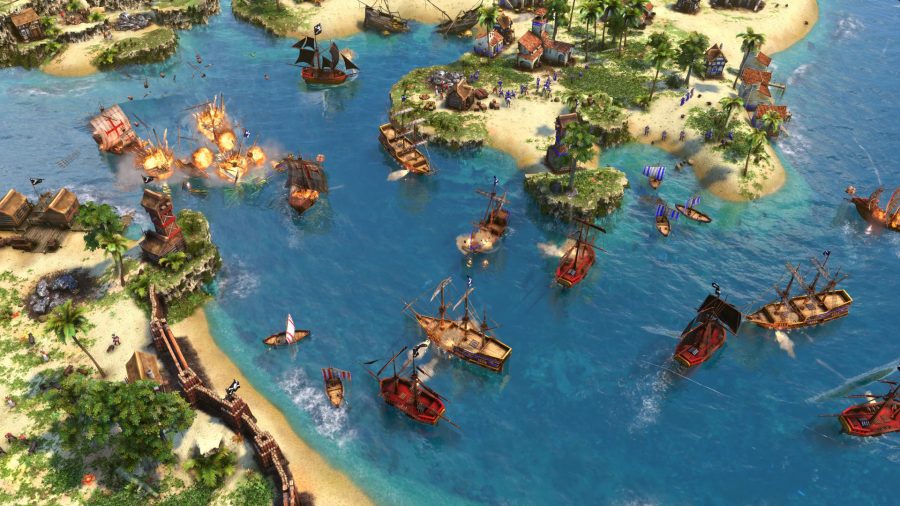It’s probably safe to assume that everyone who likes strategy games has, at some point, played one of one of the Age of Empires games. Actually, I bet that a few of you out there will have played one of them, eventually uninstalled it, and then out of nowhere installed it once more. you probably repeat this play-uninstall-install cycle every once in a while.
For some, RTS games are ones that you don’t really grow out of and the older ones in particular retain a sense of belonging and familiarity that newer attempts have found hard to beat. Age of Empires is an especially personal example for me: As a Brazilian, I can’t choose my country in any of the games in the franchise, but as a historian by degree and at heart, I’ve studied many of those empires closely — the familiarity with the leaders’ names and cultures or even the opportunity to play with history and command powerful armies is a real draw.
Generally speaking, you could take umbrage with the franchise’s nonchalant approach to historical accuracy. For some, this takes away from the game, but I couldn’t disagree more.
In Age of Empires II, for example, there is a unique take on the defeat of William Wallace and his retirement as head of the Scots after the Battle of Falkirk. In the game, not only does Wallace bring his people to victory, but he also remains their leader. The whole campaign with Saladin during the crusades and the way he lost Acre also differ from historical record, as do many other events and individuals depicted in the game’s different campaigns.

While it’s very important for games to have the historical facts available for those who wish to know them, all forms of art (and gaming is very much one of them) can benefit from poetic freedom. Many literary and artistic works don’t stick to facts all (or even most) of the time, so why should every game? As long as the factual information is readily available, I don’t see any problems with playing a bit with history in a respectful manner; something which Age of Empires mostly does.
One of the best classifications I ever found about works to do with history comes an online writer called Emily Kopf: “I would divide historical fiction into three categories: books that are as true to history as possible, usually about people and events that actually existed; books about fictitious characters living in historical settings and cultures; and books that are based on history but stray far from it for the sake of the author’s story.”
Although the quote speaks specifically of novels, it can be definitely attributed to other media. A few good examples of very well-known books that didn’t tell history exactly as it was (and even straight up invented whole parts of it) are The Iliad and The Odyssey, both from Homer; and Os Lusiadas from Camões, which describes Portuguese history in a clear attempt to flatter the king. Less known and more recent works would include Slaughter in the Sun from John Prebble, and even a lot of poems written about WWI.
Another example, and this one way more recent, is the series Man In The High Castle. The Nazis definitely did not win WWII, but for the sake of storytelling and to create and engage their viewers, the creators decided to choose a momentous war from our past and twist it. It’s classified as a dystopia, and any history book will tell you what really happened so the liberty taken is valid. Again, as it’s done in a careful way, there is no issue in playing around with history.
The same applies to Age of Empires. The historical freedom of the main campaign aside, the actual gameplay of the titles can be quite charming. In Age of Empires III, you can see the clear difference in the buildings of each civilisation during any of the five ages the game takes place in — which is honestly unexpected and refreshing since other games (even of the same franchise) did not care for such subtlety. You can see the extensiveness and thoughtfulness of the research done for the game in the amount of detail they placed on every civilisation — even the ones on the expansion packs — and in the multiplayer mode, one can modify and decorate your own metropolis and their specific landscapes.

Another detail I find fascinating about the Age of Empires games are the languages. Even if you get ridiculously annoyed at the mumblings your workers cried every single time you clicked on them to build, cut, or dig something, the fact that their words are accurate is extraordinary. It shows an attention to detail that is amazing. My go-to nation in Age of Empires III was England, but I sometimes chose Portugal just to hear my own language being spoken in its ancient (or old-ish, at least) form, and it was brilliant. I have a Japanese friend who loved choosing Japan for the same reason — you feel connected and cared-for by the game.
That all being said, one should acknowledge and be wary of biased takes, such as the unfair advantage that some empires like the Dutch in Age of Empires III have for some reason have (maybe someone just really liked the Dutch when programming them). The multiplayer allows you to bypass some of that by generating maps on the versus mode which offer you the chance to set up things like the number of enemies, allies, map size, kind of weather, difficulty, and more. There you can build up whatever challenge you wish for and deal with it at your own time (or lose repeatedly against the damn Dutch, as it often happened — don’t @ me).
Age of Empires as a series isn’t perfect, and is definitely not the best historical strategy series around, but it’s one that will forever be in the minds of those who played them. The variety of civilisations you have to choose from, the pleasure of seeing your army organising themselves in a click of a button when you tell them to, even those unforgettable and ridiculously annoying “yes, my lord”s that pop so often you can hear them for days afterwards in your dreams (or nightmares). This franchise will definitely remain a fan favourite for years to come.
Related: The best strategy games on PC
On top of that, it’s the perfect game to pass the time and play online during these quarantined times.


